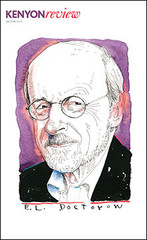
Intense guy. (Khodasevich, that is, but also true for Miłosz and Herbert).
Until this week, I knew the Russian poet Vladislav Khodasevich (1886-1939) only through the squabbles of two poets, Czesław Miłosz and Zbigniew Herbert. Some of the differences between the two Poles are documented here, but perhaps their most famous rift is associated with Herbert’s poem by the title “Khodasevich,” targeting Miłosz, not the Russian. I looked for some information on this conflict online, and found, to my surprise, an illuminating interview with Miłosz biographer in Kraków, Andrzej Franaszek. The interview, “I Will Oppress You with My Strange Love,” was conducted by Humble Moi, and I had forgotten I had done it years ago (it’s here).
A relevant excerpt:
HAVEN: Let’s discuss “Khodasevich,” from Herbert’s penultimate 1992 collection, six years before his death. It’s ostensibly about Russian émigré poet Vladislav Khodasevich (1886-1939), but actually attacks Miłosz, right down to his interest in Swedenborg and his devotion to Oscar Miłosz, his cosmopolitan kinsman and fellow-writer in Paris. It ends: “from behind the clouds his rhyming frog-croaks.” Can you explain a little Herbert’s apparent animosity, and how it scandalized Poland in the 1990s?
FRANASZEK: Well, what I can say is that personally for me—and surely for many other readers—it was a kind of shock. When I read “Khodasevich” for the first time, I couldn’t believe that it was Herbert’s poem. Not only because of all accusations which could be found in it, but mostly because of a huge dose of hostility and scorn, because of its language, tone, the poetics of a lampoon—it’s extremely different from Herbert’s normal poetical idiom. But what is really interesting, after writing “Khodasevich,” Herbert sent to Miłosz, his painfully mocked friend, a postcard with a leg of an elephant suspended upon a defenseless chicken and with a three-word note: “Don’t tread upon”…
HAVEN: Strange. I would have thought Miłosz was the one who had been underfoot. What on earth did he mean by that?
FRANASZEK: Well, what can I say? Maybe Herbert felt himself to be the weaker party in this relationship.

Alex Cigale, drawn by Dastan Abaskanov.
So what does that tell us about Khodasevich? Bupkis. But that’s probably how most people get introduced to this Russian poet, who emigrated to Berlin in the 1920s and is arguably the most underappreciated Russian poet of the last century – if they get introduced at all, that is. Upon his death, Vladimir Nabokov called him “the greatest Russian poet the 20th century has yet produced.”
More help is readily at hand with the recent issue of Kenyon Review, where a friend, Alexander Cigale, has published a new translation of his enigmatic poem, “The Ape.” (You can listen to Alex reading it, in English and Russian, here.) “The Ape” is the best known of Vladislav Khodasevich’s sequence of blank verse poems (1918-1919) in response to the horrors of World War I and the Russian Revolution. Read it here. (You can also read Peter Daniels’ translation of Khodasevich’s “Look for Me” in The Guardian here.) I find the poem enigmatic – but Alex was surprised at that characterization: “It always seemed, if anything, painfully earnest to me.” Perhaps both are true.
From Alex’s own preface to the sequence:

Current issue
While much remains to be said to attempt to explain what makes Khodasevich both stand out and not fit in with the main body of Russian poetry, it is his synthesis of the classic and the modern, the intense personalism of his lyrical ego, the directness of his voice and address often verging on simplicity, that marks his primary individuality as a poet. The naked vulnerability of such words raises the bar by exposing the relative perfection and imperfection of every word, achieving a kind of cameo-like high contrast that makes these poems nearly unique in the Russian canon.
Tags: Alexander Cigale, Czeslaw Milosz, Peter Daniels, Vladimir Khodasevich, Zbigniew Herbert

